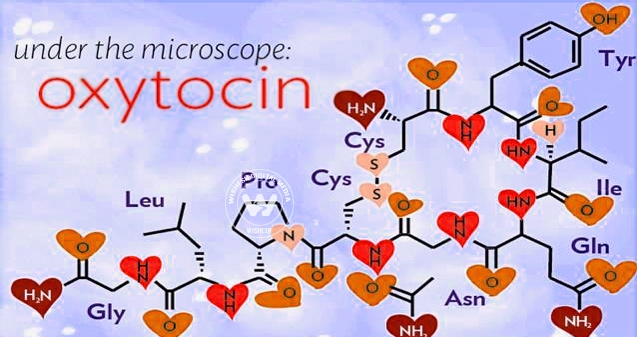
(Image source from: Oxytocin)
A new study has brought into prominence regarding the hormone, oxytocin that could play a role in treating psychiatric disorders such as autism and schizophrenia. According to the study conducted by Dr David Cochran of University of Massachusetts Medical School and his colleagues, oxytocin is an important regulator of human social behaviors. The study also revealed that the hormone can also be useful for treating certain mental health diagnoses, particularly those which involve impaired social functioning.
A growing body of evidence in animals and humans has exposed that oxytocin, probably most familiar for its role in initiating labor and breast milk flow in pregnant women, plays an important role in regulating social behaviors. On the basis of these effects, researchers have come up with a mistrust that oxytocin may be a common factor in certain psychiatric disorders. The reviewers examine in detail of the evidence for oxytocin''s involvement in specific disorders which includes some early research on oxytocin as a potential treatment for these conditions.
Furthermore, Dr Cochran and coauthors wrote that the ground for belief suggests a role of oxytocin in the pathophysiology of some psychiatric disorders, particularly those characterized by impairments in social functioning. Even though the preliminary nature of the currently available data eliminates a clear understanding of the exact nature of the hormone’s role, the study made it visible that proper clinical trials would be able to provide a better understanding of the extent and limitations of the clinical effects of externally delivered oxytocin. The study was known to have been published in Harvard Review of Psychiatry.
(AW:SB)








